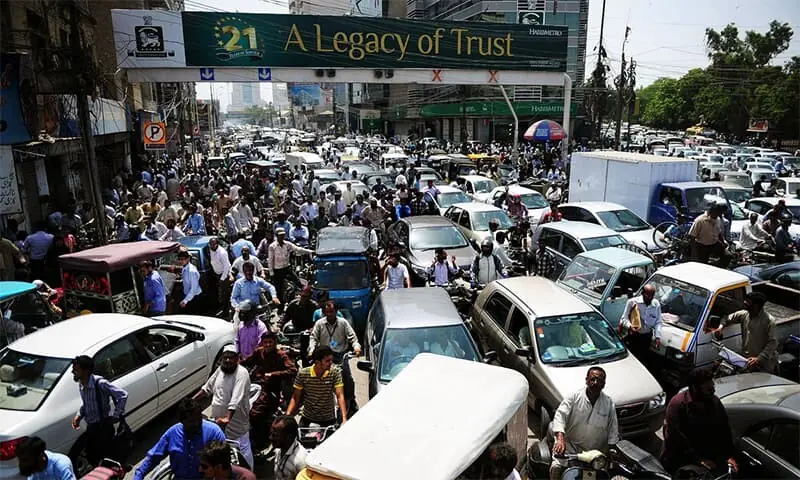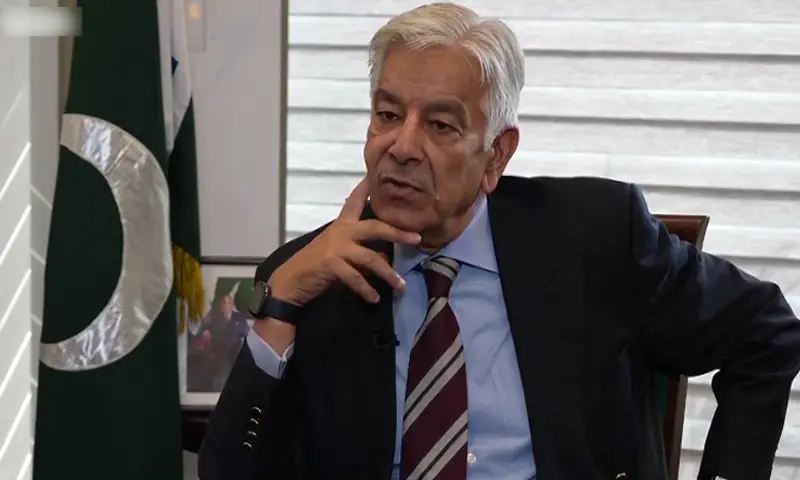The Sindh government has introduced a new e-challan system that aims to improve city traffic while minimizing the traffic police’s interaction with the public.
Under the new system inaugurated recently, at least 5,500 challans have already been given to traffic rule violators across the city. Here’s what you need to know about the system.
What is e-challan system?
Deputy Superintendent of Police (DSP), Karachi Traffic Police Administrator Kashif explained that the system was introduced as part of the Karachi Safe City Project.
In the first phase, a total of 1,076 cameras have been installed on the main roads.
When phases 2 and 3 of the initiative are completed, up to 12,000 cameras will have been installed in all areas of Karachi, as well as at toll plazas.
Once a challan is started, it will be sent through Pakistan Post to an address linked to the license plate issued by the Sindh Tax and Excise Department.
While the total time to clear the challan is 21 days, if it is paid within 14 days, the offender would get a waiver of 50 per cent of the amount.
However, if not paid within 21 days, the total amount will be doubled on the 22nd.
How can you appeal?
If you believe you have been unfairly fined, there is also a system for making an appeal.
Counters have been set up at 11 police stations across the city in case you think you have been charged with a challan despite not violating any traffic rules. The addresses of such stations can be found on the back of the challan itself.
Once you file a complaint, a token will be issued while a three-member committee reviews the appeal.
The committee, set up in each district, is headed by a senior superintendent of police (SSP) and includes a senior police official and an official from the Citizen-Police Liaison Committee (CPLC).
The CPLC is a non-political statutory organization providing community safety and crime prevention services in Sindh.
If your appeal is successful (which will take three to four days to process), the challan will be removed from the system. During the process, the 21-day timer for payment of the challan remains paused.
What if you don’t pay the challan?
Failure to pay the challan within three months may result in suspension of driving license.
If the traffic fines remain unpaid for 6 months, the National Database and Registration Authority will be contacted to block the Computerized National Identity Document (CNIC). Nadra will notify the violator of traffic rules and if the challan is still not paid, the authority can block the CNIC.
Additionally, a demerit point system has been incorporated into the e-challan process to further discourage transgression of traffic laws. Each violation committed by the driver of a vehicle will have one demerit point, and 30 demerit points in a year will result in the suspension of the driving license.
While the mechanism is currently only operational for number plates registered in Sindh, talks are underway to include vehicles from other provinces.
‘Fear, responsibility, accountability’
Deputy Inspector General of Police Traffic (DIG) Karachi, Pir Mohammed Shah said dawn.com“This system represents an important milestone in ensuring compliance with traffic laws and improving effective enforcement.”
He said the e-challan system is based on the principles of fear, responsibility and accountability – the fear of being caught on camera, the responsibility that comes from that awareness and the accountability that comes with knowing that any violation will be recorded and acted upon.
Unlike the previous manual system, where discretion rested with individual officers on the road, the new digital process ensures complete transparency and uniform application, the traffic police chief added.
Additionally, citizens can use the Trax4Citizens app available on the Sindh Police website.
The app can be found on the main page (bottom right corner). To download and access it, users simply have to enter their CNIC, mobile number and email address.
Once registered, the application displays all the vehicles registered with the CNIC, along with details of the violations and warnings issued against them.
“The app not only allows users to track the status of their challans, but also serves as an educational tool, helping citizens understand their driving patterns and avoid future violations,” said the senior traffic police officer.
By studying the warnings generated by the system, users can become more aware and responsible drivers, contributing to safer roads for all, said DIG Shah.
“With public cooperation, this system will continue to improve,” he said, urging citizens to strictly follow traffic regulations so that the city’s traffic flow can be improved and traffic accidents reduced.







